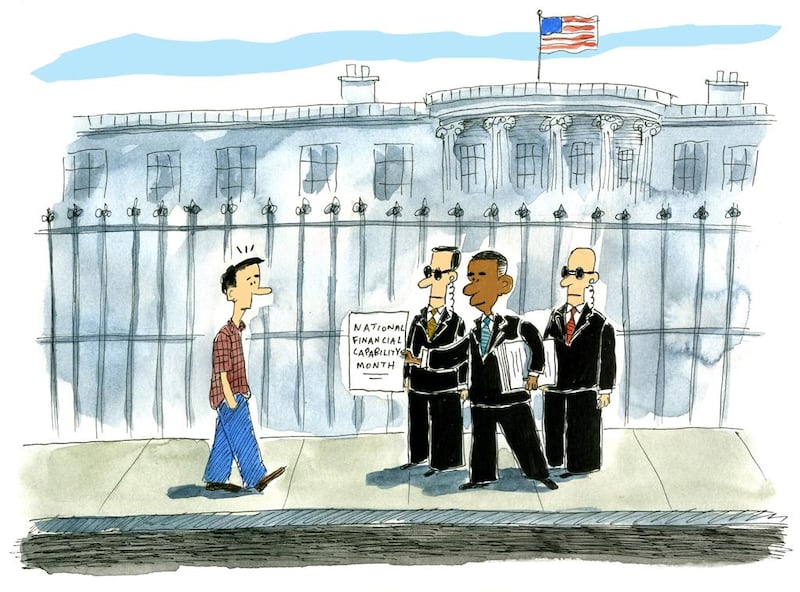April has been proclaimed National Financial Capability Month in the United States. I'll let the president, Barack Obama, explain: "During National Financial Capability Month, we renew our drive to give all Americans the tools to navigate the financial world and gain the economic freedom to pursue their own measure of happiness".
The president goes on to say: "I call upon all Americans to observe this month with programmes and activities to improve their understanding of financial principles and practices."
Fixing Americans' financial problems? Helping them on their way to happiness? Sounds too good to be true. It is.
First the president says the American people will be given the tools to gain financial know-how and freedom, but then he goes on to put the onus on people to find out for themselves what these tools are and how to achieve fiscal freedom.
It's a subtle shift in emphasis, but it concerns me. Why?
It smacks of the risk and responsibility for any fiscal mistakes coming to rest squarely on the increasingly fragile and ever more burdened shoulders of individuals - rather than corporates and government.
I believe that addressing financial issues is to be found in both creating and policing the tools that people are presented with - making sure that they are simple, transparent and easy to understand - and all of us committing to learning more about how to manage our money.
There's still a way to go for what banks offer to be truly people-friendly, and I would say that this is the more important of the two issues. But this is a conversation for another day.
For now, let me focus on the latter, financial literacy. It's all the rage these days - budgets are being allocated to create and deliver courses, booklets and various other methods to make us more financially savvy. Hoorah.
But does it work? Is it as simple as taking a few classes, reading a few pages of a booklet, to learn how to manage your money?
In a word: No.
Time and again, financial literacy studies show that the impact of financial education on subsequent, related behaviour is unclear. People who have been through a course or read a booklet on how to manage or understand their finances are no more financially literate then those who have not. The participants do not show better financial behaviour.
So how effective are financial literacy courses? Let's go through some findings:
This is the conclusion of a study on high school students, some of whom had attended financial literacy courses one to four years earlier.
None of the four traditional approaches to financial literacy - employer-based, school-based, credit counselling or community-based - has generated strong evidence that financial literacy efforts have had positive and substantial impacts.
There's another one that analyses the findings of dozens of studies involving nearly 600,000 people. It concludes that learning more about finance just before you embark on making key decisions does have more impact. This stands to reason if you think about it, but the worrying thing is that this bit of common sense appears to be the highlight of all the work that went into improving people's financial literacy.
This study of studies also says that financial education done in a setting that is linked to people's lives - at work or college, for example - is much more effective than when it's delivered in a stand-alone fashion. This could be through a leaflet or other printed material, or a separate workshop. This also makes sense. If we make it about the person's life, not about pure personal finance, it'll stick a bit more.
Yes, we all need to be more financially savvy. The question is, what's the best way for this to happen?
There's little connection between financial literacy and the choices people make about their finances. This is not about condemning these efforts. Think of this as a glimpse into what doesn't appear to work.
So what does work? I don't know. But I do know that it'd be money better spent if we take heed of the above and admit that we have a major problem on our hands. Now, how do we fix our financial problems - together - in an effective, efficient and equitable manner?
Nima Abu Wardeh is the founder of the personal finance website cashy.me. You can reach her at nima@cashy.me
business@thenational.ae
Financial management more than book learning
Becoming financially savvy isn't as simple as taking a course in personal finance management. To be truly literate, you need to understand how to manage your money to suit your own needs.

More from the national




